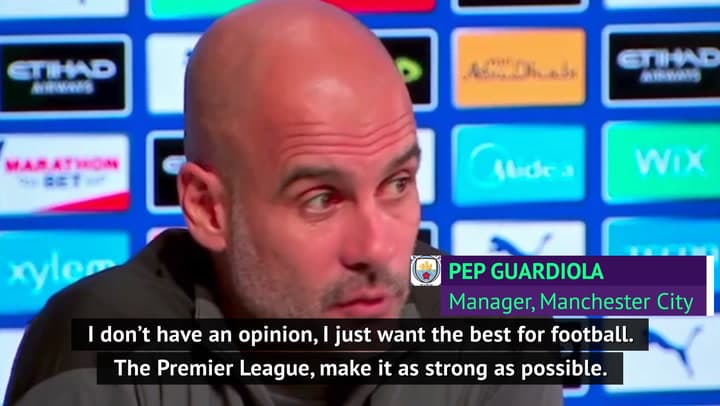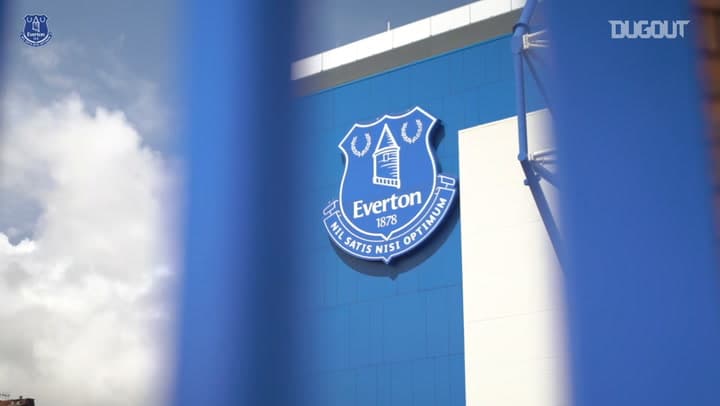OneFootball
Joel Sanderson-Murray·31 October 2020
🌡 Hot Take: Football's greed could keep fans away for good

In partnership with
Yahoo sportsOneFootball
Joel Sanderson-Murray·31 October 2020

While COVID-19 cases rise around Europe, football continues to exist in a vacuum of its own with the fixture calendar carrying on as normal, albeit in a condensed structure.
There are more pressing issues to worry about outside of the sport right now but the mind boggles as to what state we’ll find the game in when we get to the other side of the pandemic.

A post-COVID football world may contain fewer clubs than it had in March as many battle with the financial constraints the coronavirus has had on the economy.
The institutions and organisations in charge may be insisting, or trying, to carry on as normal but the shape of the sport is likely to dramatically change.
With the context we find ourselves in, we have to wonder whether there will even be the same love and desire for the game in the post-COVID era?

Right now, there is longing from all parties for supporters to be able to return to stadiums to get behind their teams again but that might not remain the case. The game’s obsession with greed and power seriously risks losing a generation of fans, as well as pushing away the ones who already love their clubs.
Josep Bartomeu dropped a bombshell in his press conference announcing his departure as Barcelona president on Tuesday, stating:
“I can announce that yesterday we approved participation in a European Super League.”
Whether there is actually any truth to Bartomeu’s claims remain to be seen but the spectre of a Super League has been hanging over the sport for decades.
Recently, the noise has been growing louder and the leaks around plans are becoming more regular.

The ‘Project Big Picture’ attributed to the owners of Liverpool and Manchester United which was sold as saving the English football pyramid in return for complete control for the ‘big six’ – also containing Arsenal, Chelsea, Manchester City and Tottenham Hotspur.
‘Big Picture’ had all the fingerprints of an eventual transition to the ‘European Super League’ and after the proposal had been turned down, another leak broke out suggesting Liverpool and United were again instigating a dramatic change towards a ‘European Premier League’ model.
The big reveal we all saw coming. The wolf in sheep’s clothing is here and it’s dressed like a Premier League giant.
This needs calling out for what it is: the big boys taking advantage of the perilous situation the English football pyramid finds itself in to impose a power grab.
Money and power rules the roost with these clubs and this form of opportunism leaves a bad taste in the mouth.

Within the lower levels of English football, a marketing slogan is used to attract fans to go and watch their local team which reads “don’t let your children grow up thinking football is a TV show.”
The irony is, that’s exactly what it has become now that games have had to take place behind closed doors.
It must be said that this is to no fault of the clubs, and it is completely the right thing to do regarding the health and safety of the general public.
However, the enjoyment of the game is massively handicapped when supporters have to watch their team from home, usually alone and unable to share the highs and lows of the sport they love with like-minded people.

Will the viewers keep on tuning in to the game we are being presented with at the moment?
The technical quality of the football may not have dropped but it wouldn’t be a massive surprise if the appetite was starting to wane as TV companies try to pump in fake noise to maintain the illusion that this is all normal.
Not only this, but in England we’ve seen these same companies, in cahoots with the clubs, charge fans £14.95 to watch their team live if they’ve missed the privilege of being selected for TV coverage.
It’s emotional blackmail, knowing supporters will be desperate not to miss out on seeing their team but to do this during the current situation around the world is criminal.
But this is what it’s all about. Money. Greed. Exploiting the fans (consumers) for every last penny.

Even the push to get fans back into the ground has been made clear that it’s about getting an income back on the books. Clubs have shown in their desperate hours what it’s all really about.
Your average supporter has known this has been the case for a long time but has somewhat overlooked it because their love for their institution is too strong.
However, football’s mask has well and truly slipped now.
The sport has long existed as a business and like every any industry right now, is feeling the pinch. Fans have turned a blind eye to this truth for as long as they were not made to feel like a consumer, and it was easier to avoid that realisation when they could feel some kind of connection to team they support by being at the ground.
The love between a fan and their football club is unconditional but this relationship could be about to face its biggest test.






























































